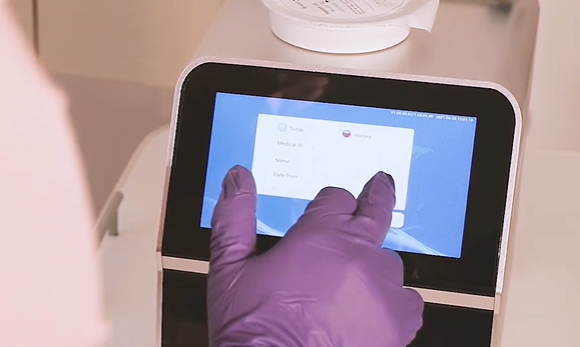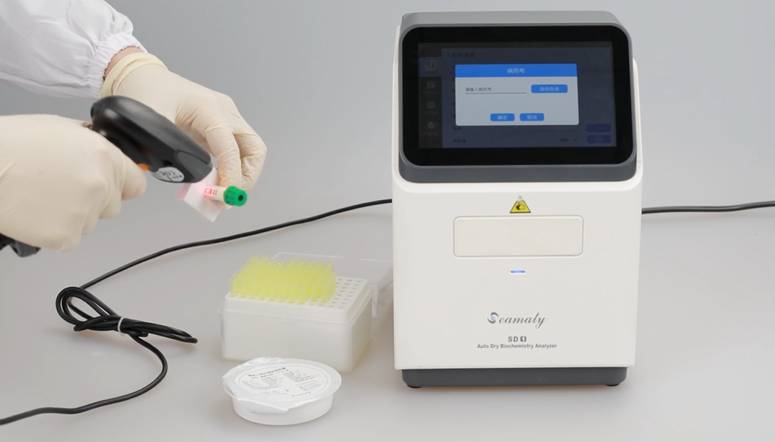Meaning and history of point of care testing
Point⁃of⁃Care Testing (POCT) is a test that is performed at the site of sampling and uses a portable analytical instrument and accompanying reagents to obtain rapid results. The earliest reported use of POCT dates back to a papyrus document from 1550 BC. This document describes the use of ants by Egyptian physicians to determine if a patient has diabetes.
Today, the goal of POCT is to provide an immediate, convenient and easy-to-use diagnostic test that reduces treatment turnaround time at the time of patient care and provides rapid diagnostic information. This allows physicians to make immediate clinical management decisions that improve patient safety and clinical outcomes, as well as patient satisfaction.
Diagnostic laboratory systems took shape in the late 1960s and early 1970s. In the mid-1980s, new technologies emerged that made it possible to move some tests (particularly glucose and blood gas tests) from the laboratory to the patient care setting.
Point-of-care testing devices have expanded from fewer than 10 in 1995 to 110 today. The demand for faster testing and shorter turnaround times on the application side is directly driving the POCT market expansion. The development of innovative technologies, such as lab-on-a-chip and DNA/RNA-based molecular diagnostic tests, has effectively expanded POCT test offerings and their applications in various fields.
The most important features of
Point-of-care diagnostics over traditional central laboratory testing methodologies are the following.
01 Immediate: POCT technology allows for rapid results (about half an hour), which is a major advantage over traditional central laboratory testing for more time-sensitive items.
02 On-the-go: Point-of-care diagnostics can be conveniently performed at the sampling site, saving the time and cost of sample transfer, while facilitating frequent, multiple testing.
03 Low operator requirements: compared to the large testing equipment and reagents in central laboratories, POCT equipment requires low technical qualifications for operators, is simple and easy to use, and can be carried out by non-professional examiners or even by the patients themselves.
What is the use of POCT?
POCT equipment is now widely used in hospital beds, outpatient clinics (clinics or physicians' offices), emergency and ICUs, and government inspection and quarantine institutions. This includes clinical testing, major epidemic surveillance, on-site law enforcement testing, military and disaster relief, etc. The main advantages of POCT can often be seen in the home environment, such as individual health management. In addition to common blood glucose testing and hormone testing, POCT for home use is now an important growth area for POCT, as is the management of other infectious diseases.
What are examples of POCT?
-
Individual health management: blood glucose management, pregnancy testing.
-
Clinical applications: such as cardiovascular testing, infection factor testing, blood gas and electrolytes, blood glucose monitoring, pediatric testing, etc.
-
Infectious disease and major epidemic detection: influenza, HBV, HIV testing, etc.
-
Field law enforcement testing: alcohol testing, drug testing, forensic toxicology testing.
Point⁃of⁃Care Testing Technology
The main assay methodologies used in POCT on the market today are lateral chromatography, fluorescent immunochromatography, small chemiluminescence platforms, dry chemistry, and nucleic acid detection platforms (based on PCR technology/non-amplified assays.) POCT is achieved through the use of portable, and handheld instruments and test kits. POCT uses microfluidics and nanotechnology to combine multiple analytical methods on a single platform, such as Lab-on-a-Chip. With the development of information technology, big data analytics and cloud technology, making the iPOCT platform an inevitable future trend.


